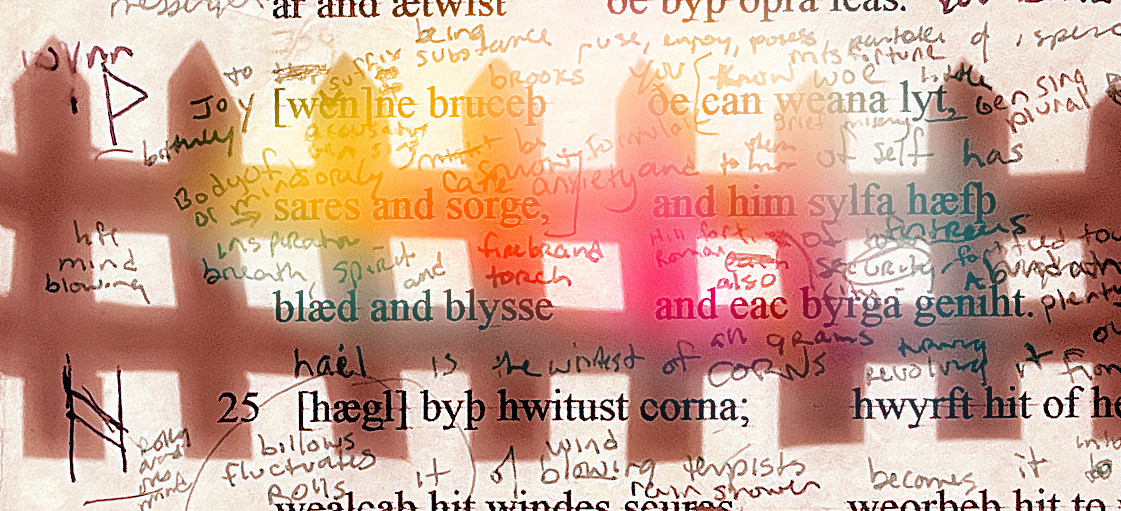 The Wyn stanza breaks with the usual byþ beginning: it starts with ne. Ne means not, or no. It can be used as a conjunction too, but here ne is neither this nor that. Old English is an inflected language meaning it uses different prefixes and suffixes to change a word’s grammatical usage in a sentence. The Wyn rune often shows up in manuscripts as a grammalogue (a single symbol used to represent an entire word) with a suffix attached, like this: ᚹne instead of wynne, meaning “of joy.” Th ne at the start of this stanza is a suffix, not a complete word and not a negation. Wyn starts out with a note of joy!
The Wyn stanza breaks with the usual byþ beginning: it starts with ne. Ne means not, or no. It can be used as a conjunction too, but here ne is neither this nor that. Old English is an inflected language meaning it uses different prefixes and suffixes to change a word’s grammatical usage in a sentence. The Wyn rune often shows up in manuscripts as a grammalogue (a single symbol used to represent an entire word) with a suffix attached, like this: ᚹne instead of wynne, meaning “of joy.” Th ne at the start of this stanza is a suffix, not a complete word and not a negation. Wyn starts out with a note of joy!
Usually the mood of Old English poetry is not joyfulness — it tends toward the gloomy, but there’s still plenty of wyn in it, particularly in the Rune Poem where the word wyn occurs six times. … More


